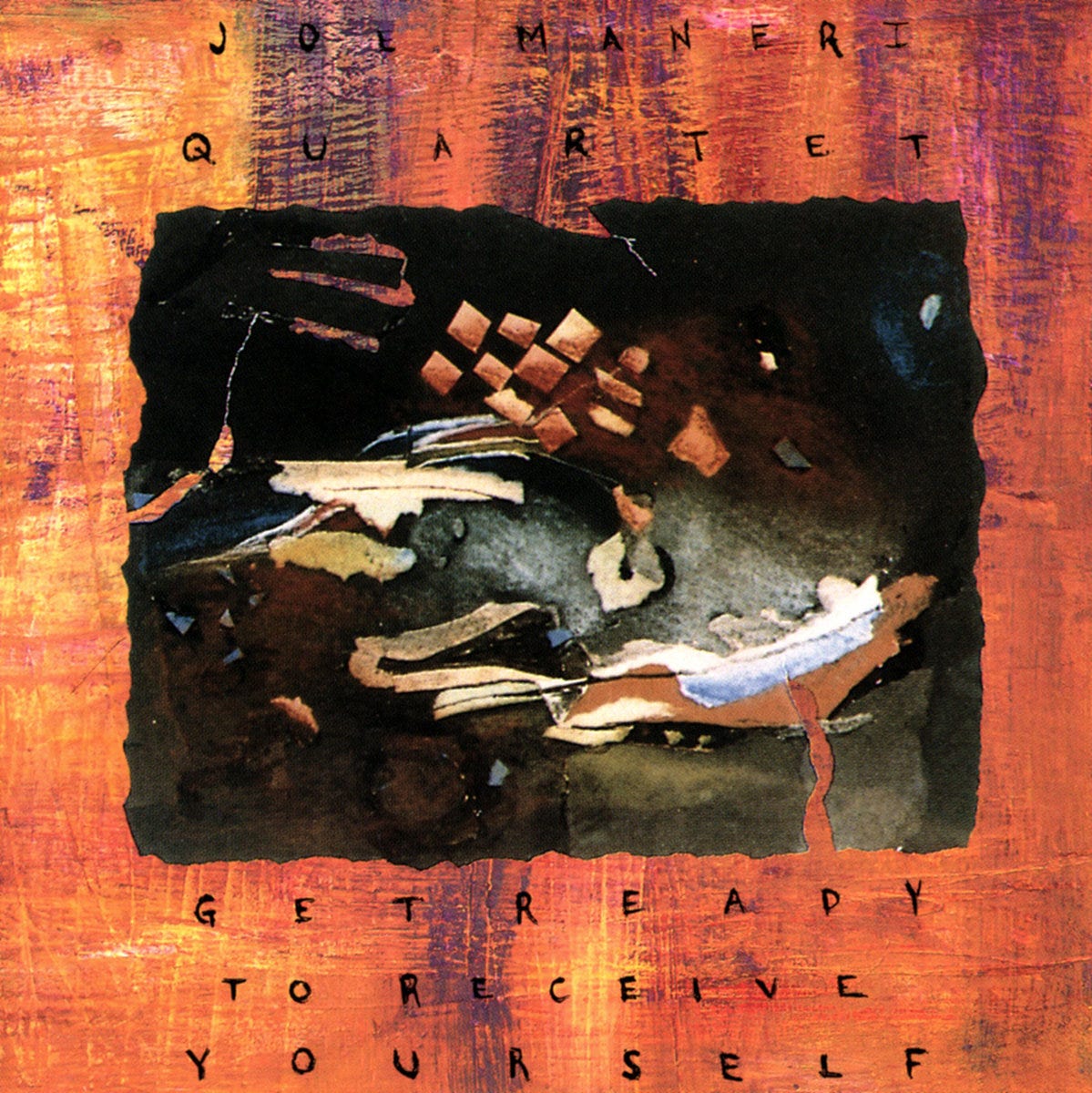Get Ready To Receive Joe Maneri
Links and more for April 11, 2025
Let’s talk about the music of composer and reeds player (saxophones and clarinet) Joe Maneri. Back in March, as part of the ongoing Leo Records digital reissue campaign, we put four of his releases up on Bandcamp: 1995’s Get Ready To Receive Yourself and 1996’s Let The Horse Go, both by the Joe Maneri Quartet, 2001’s The Trio Concerts by the Joe Maneri Trio, and 2003’s Pinerskol, a duo album with Masashi Harada. In today’s newsletter, we’re going to discuss the first three of those.
Joe Maneri was born in 1927. He first recorded in the early 1960s, but no one would release his music, so he worked crappy regular-person jobs and eventually got work teaching at the New England Conservatory of Music. He also played weddings and other social gigs. (The best, most concise version of his life story that I’ve found is this 2000 profile by Harvey Pekar.)
By the late ’90s, Maneri had put out several albums on Leo, hatART and ECM, and was beginning to gain a reputation, particularly in Europe, as a composer and performer of strikingly original jazz. But he was already in his sixties, and wound up enjoying only a decade or so of public acclaim before his death in 2009.
In an obituary published in JazzTimes, fellow reeds player Marty Ehrlich wrote, “He told me once how he wasn’t interested in sounds and effects; he had nature for that. His exploration and codification of microtonal music was surely for its vocal, expressive qualities he knew from his early years playing Greek, African-American, Italian and Jewish musics based on the notes between the notes. But he fully believed that this is where music’s future was, and that large-scale works equal to the great works of the past would be composed with microtonal harmony.”
The “microtonal” thing, which is the first thing you’ll read in almost any discussion of Joe Maneri’s music, is really kind of unimportant, at least from this listener’s perspective. The music on these three albums doesn’t present as rigorous chamber jazz based on arcane tunings and carefully calculated harmonic relationships. It’s music that seethes and vibrates with life, and the notes he and his bandmates (including his son, violinist Mat Maneri) play make perfect sense.
Get Ready To Receive Yourself was the first Joe Maneri Quartet album, recorded in 1993 and released two years later. It features father and son joined by bassist John Lockwood and drummer Randy Peterson and includes nine original compositions and a version of the standard “Body and Soul”. This is hushed music with a lot of space between phrases; it often sounds as if the players are tiptoeing around each other. But when trust has been built, a fascinating conversation can and does begin.
The group’s second studio album, Let The Horse Go, was recorded in 1995 and released the following year. It’s a little more passionate and energetic at times than its predecessor — this was by then a group with plenty of performances under its belt and a defined collective voice. Mat Maneri’s violin takes the lead spot at least as often as his father’s battery of horns, and Lockwood falls in alongside him as Peterson drops in percussive accents that almost recall Tony Oxley’s playing with Cecil Taylor.
In 2001, the group (without Lockwood) released a double disc of live recordings, The Trio Concerts, recorded in 1997 and 1998. The performances are simultaneously more sparse and a whole lot louder. Peterson dominates things, especially on the first set; his drum solo on “Balance + Pulse” is thunderous, and he’s prominent in the mix at all times. But the interaction — between father and son, between Mat Maneri and Peterson — is astonishingly intimate.
Whether you know anything about microtonalism or not, whether you care about microtonalism or not, Joe Maneri’s music is some of the best and most interesting avant-garde jazz of the late 20th century, made by a guy who waited decades for the world to come to him. This is not dry, abstruse stuff; it’ll hold your attention from beginning to end. Buy these albums, sit with them, and really listen. What you’ll hear will change you.
Hosted by Rihards Endriksons, journalist and artistic director of Latvia's Skaņu Mežs festival, Such Music is a monthly show devoted to new works of free improvised music, either previously unheard or created specifically for the show. This month’s episode offers an early preview of saxophonist and composer Ingrid Laubrock’s upcoming album Purposing The Air, which features 60 short pieces performed by four different duos, all set to a text by poet Erica Hunt. Fragments from Laubrock’s improvised music recordings are also played, featuring Tom Rainey, Brandon Lopez, Hannah Marshall and Veryan Weston. The episode ends with Laubrock’s fantastic orchestral piece from 2018, Contemporary Chaos Practices. Listen now on Mixcloud.
If you’re a free subscriber, today’s newsletter ends right here, and I thank you for reading. But if you’re a paying subscriber, there’s something behind the paywall that I think (I hope) you’ll find very interesting. See you there…
Keep reading with a 7-day free trial
Subscribe to Burning Ambulance to keep reading this post and get 7 days of free access to the full post archives.



